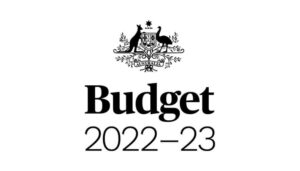
Employer Superannuation Obligations
As an employer, you have many employment obligations. One of those is to pay your employees’ superannuation on time. There are significant penalties for failing to comply with your superannuation obligations. Below we have outlined your superannuation obligations, the implications of failing to comply with these obligations and what you should do if you need to get your superannuation liability up-to-date.
If you are behind in your superannuation obligations, the best thing you can do is contact a tax professional who can help you get up-to-date and make the relevant disclosures to the ATO.
When is superannuation due?
Employers are required to pay their employee’s super into their choice or default superannuation fund no later than the 28th day after the end of the quarter. The relevant cut-off dates are therefore 28 April, 28 July, 28 October and 28 January.
How much super do you need to pay?
The superannuation guarantee rate has been increasing in recent years – see summary below.
Superannuation Guarantee Rates
- 1 July 2013 – 30 June 2014 -> 9.25%
- 1 July 2014 – 30 June 2021 -> 9.5%
- 1 July 2021 – 30 June 2022 -> 10.00%
- 1 July 2022 – 30 June 2023 -> 10.50%
- 1 July 2023 – 30 June 2024 -> 11.00%
- 1 July 2024 – 30 June 2025 -> 11.50%
- 1 July 2025 – 30 June 2026 and onwards – 12.00%
As an employer, your superannuation liability will be calculated as the superannuation guarantee rate (per above) multiplied by all ordinary times earnings payments* you make to your employees.
The date of the payment determines the rate of the superannuation payable, regardless of when the work was performed.
* The ATO have a list of what payments constitute ordinary times earnings here.
What if you can't (or don't) pay your super liability by the due date?
You will need to lodge a Superannuation Guarantee Charge Statement (SGC Statement) if any of the following apply to you:
- You have failed to pay your employees’ superannuation;
- You have paid your employees’ superannuation after the relevant due date;
- You have paid your employees’ superannuation to the incorrect fund.
Once you have lodged the SGC Statement, you may be able to arrange a payment plan with the ATO for any outstanding superannuation liability.
Superannuation Guarantee Charge Statement
An SGC Statement must be lodged one calendar month after your superannuation liability is due (so 28 May, 28 August, 28 November, 28 February).
The SGC Statement can be lodged electronically with the ATO.
The amount due under the SGC statement will be:
- The unpaid superannuation; plus
- Any choice liability (based on the shortfall and capped at $500); plus
- Nominal interest of 10% per annum (which accrues from the start of the relevant quarter until the statement is lodged); plus
- An administration fee of $20 per employee, per quarter.
It is important to note that, even where you have paid your employee super after the due date, interest will continue to accrue until you have lodged your SGC statement. For example, if you pay your employee super one week late, but lodge your SGC statement 2 months later, you will incur interest up until the date that you lodge the statement.
What are the implications of not complying with your super liabilities?
If you do not comply with your super liabilities, the following implications may arise:
- Any superannuation payments made after the due date are not tax deductible;
- Failure to lodge an SGC statement by the relevant due date is liable to a penalty calculated at 200% of the superannuation liability (so you will be liable to pay the original liability which is not tax deductible plus 2 times the liability as a penalty);
- If the superannuation remains unpaid, the ATO may issue a Director Penalty Notice which means the directors of the company will be personally liable for the outstanding superannuation and associated penalties and interest. This places the directors’ personal assets at risk.
There are also penalties for failing to pay superannuation into the correct fund, failing to keep appropriate records and failing to provide your employee’s TFN to the superannuation fund.
As you can see, there are significant financial penalties that can be imposed for failing to comply with your superannuation obligations. These financial penalties can also impact on your personal assets (even if you run your business through a company). If you are behind on making superannuation payments, we recommend that you contact us as soon as possible.
What to do next?
We recommend that you take the following action (even if you think your business is complying with its superannuation obligations):
- Check that your accounting software is correctly calculating your superannuation liability using the appropriate superannuation guarantee rate;
- Check your accounting software is correctly calculating your superannuation liability on all relevant salary and wage payments;
- Check that your superannuation has been paid on time and to the correct superannuation funds;
- If you haven’t paid the right amount of super, on time and to the correct superannuation fund, you need to lodge a superannuation guarantee charge statement as soon as possible;
- Once the superannuation guarantee charge statement has been lodged, you can negotiate a payment plan with the ATO for the payment of the outstanding super.
We can assist you with any (and all) of the steps above. It is important to get help as soon as possible with outstanding super. The longer the liability is left unremedied, the higher the potential interest and penalties.
DISCLAIMER: The information in this article is general in nature and is not a substitute for professional advice. Accordingly, neither TJN Accountants nor any member or employee of TJN Accountants accepts any responsibility for any loss, however caused, as a result of reliance on this general information. We recommend that our formal advice be sought before acting in any of the areas. The article is issued as a helpful guide to clients and for their private information. Therefore it should be regarded as confidential and not be made available to any person without our consent.

Jeanette has over 20 years experience as an accountant in public practice. She is a Chartered Accountant, registered tax agent and accredited SMSF Association advisor. When she is not helping business owners grow their empires, you will likely find her out running on the trails or at the gym. Book in to see Jeanette today.




